15 Foods You Should Avoid Cooking in Aluminum Foil
Cooking with aluminum foil is a go-to method for many, thanks to its convenience and ability to trap heat. However, not every food is a good match for this kitchen staple. Certain foods can react with aluminum foil in ways that may compromise your meals’ safety and flavor.
This can lead to unwanted chemical reactions that alter the taste and texture of your food and pose health risks over time. To ensure you’re cooking safely and getting the most out of your ingredients, you must know which foods you should avoid wrapping in aluminum foil. Below are 15 foods better off cooked or stored in other materials.
Tomatoes
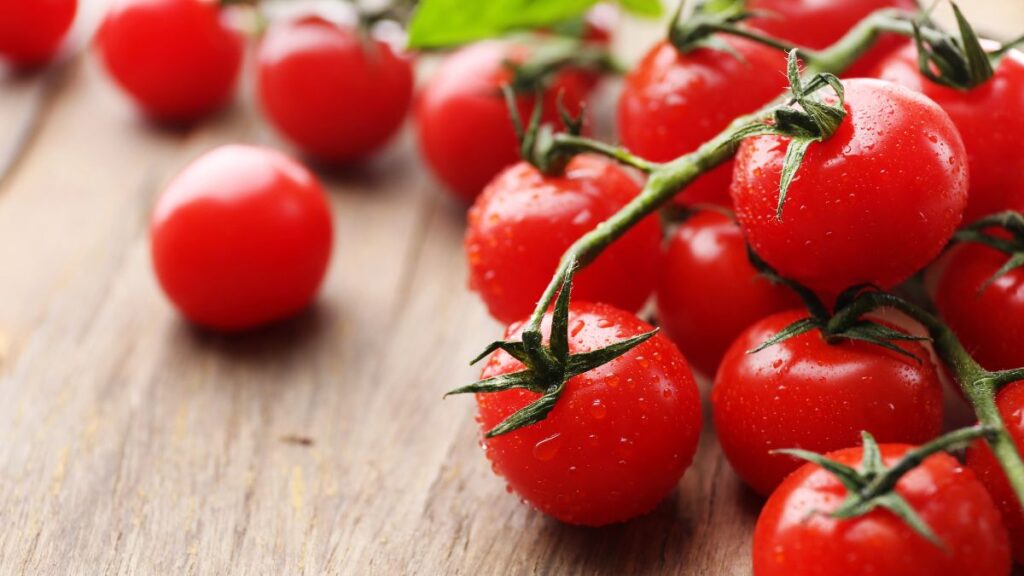
With their vibrant acidity, Tomatoes are a classic ingredient in many dishes, but they need to be better-suited for aluminum foil. The high acid content in tomatoes can cause a reaction with the aluminum, leading to the foil breaking down and small particles of metal leaching into your food.
This compromises the flavor of your tomatoes, giving them a metallic taste, and raises concerns about ingesting aluminum. Over time, consuming foods contaminated with aluminum could pose health risks, including potential links to neurological issues. To avoid these risks, it’s best to cook or store tomatoes in glass or ceramic dishes, which are non-reactive and won’t alter the quality of your food.
Citrus Fruits
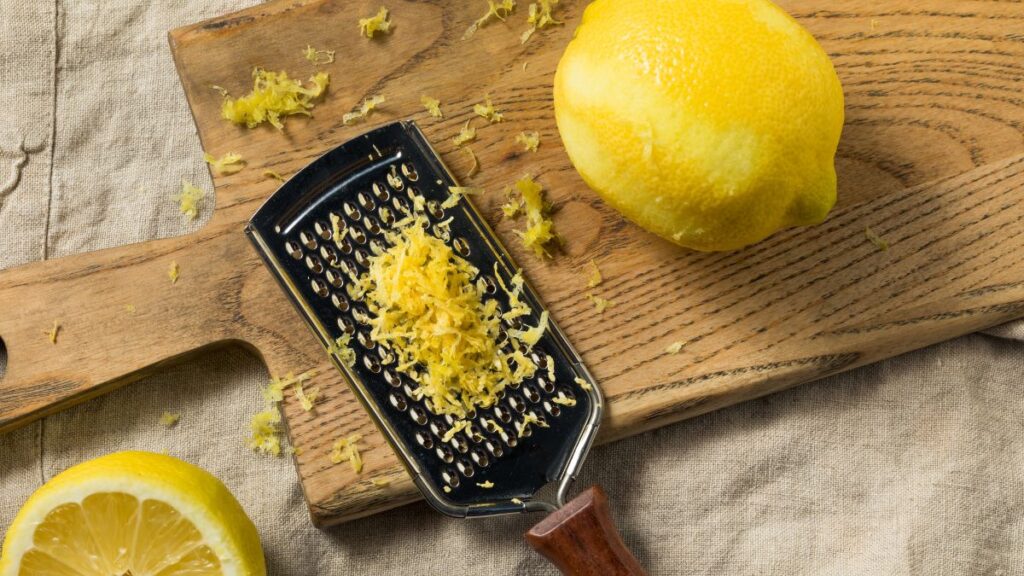
Citrus fruits like lemons, limes, and oranges are packed with tangy flavor and acidity, but this quality makes them a poor choice for aluminum foil. The natural acids in citrus fruits can react with the aluminum, causing it to corrode and potentially leach into the fruit. This reaction can impart a metallic taste to your citrus, ruining their fresh, bright flavors.
The degradation of the foil can lead to holes, making it less effective at sealing and protecting your food. Use parchment paper or a glass dish when cooking or storing citrus fruits for better results. This will help preserve their natural flavors and ensure no unwanted chemicals enter your meal.
Vinegar-Based Sauces
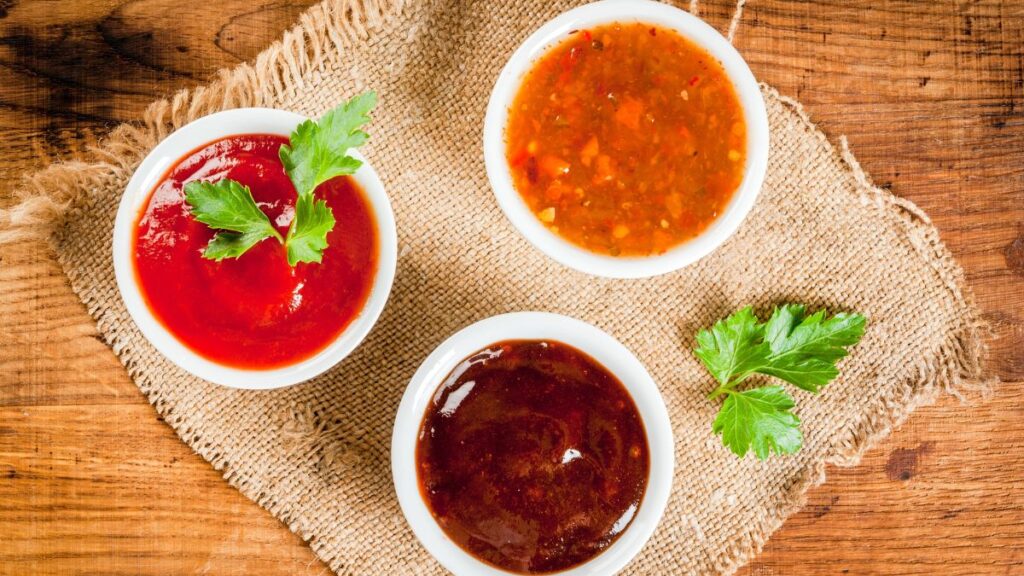
Vinegar is a popular ingredient in marinades, dressings, and sauces, known for its tangy kick and ability to tenderize meats. However, its acidic nature makes it incompatible with aluminum foil. When vinegar comes into contact with aluminum, a chemical reaction can occur, breaking down the foil and potentially contaminating your food with aluminum particles.
This not only alters the taste, often imparting a bitter or metallic flavor, but it can also compromise the nutritional quality of your meal. To avoid these issues, storing and cooking vinegar-based sauces in glass, stainless steel, or plastic containers is better. These materials are non-reactive and will keep your sauces tasting as they should.
Pickles
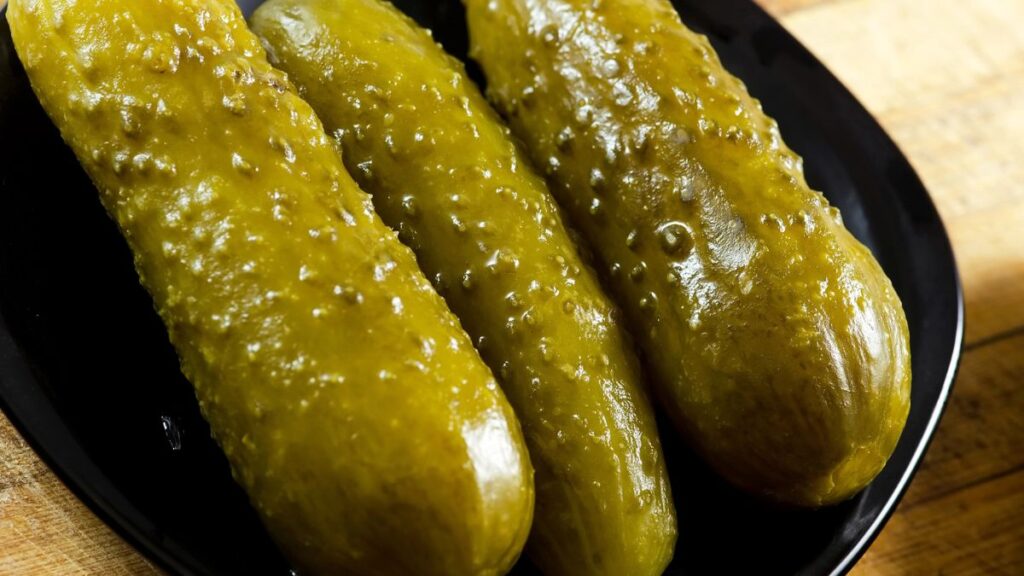
Pickles, loved for their tart and tangy flavor, are typically brined in a solution high in vinegar or salt, making them highly acidic. When pickles are stored or cooked in aluminum foil, the acid in the brine can react with the foil, leading to corrosion and the potential leaching of aluminum into the pickles.
This affects the taste, making them less palatable and raising health concerns over long-term aluminum consumption. To keep your pickles crisp and flavorful, store them in glass jars or ceramic containers, which are non-reactive and won’t interfere with their natural taste.
Salted Foods
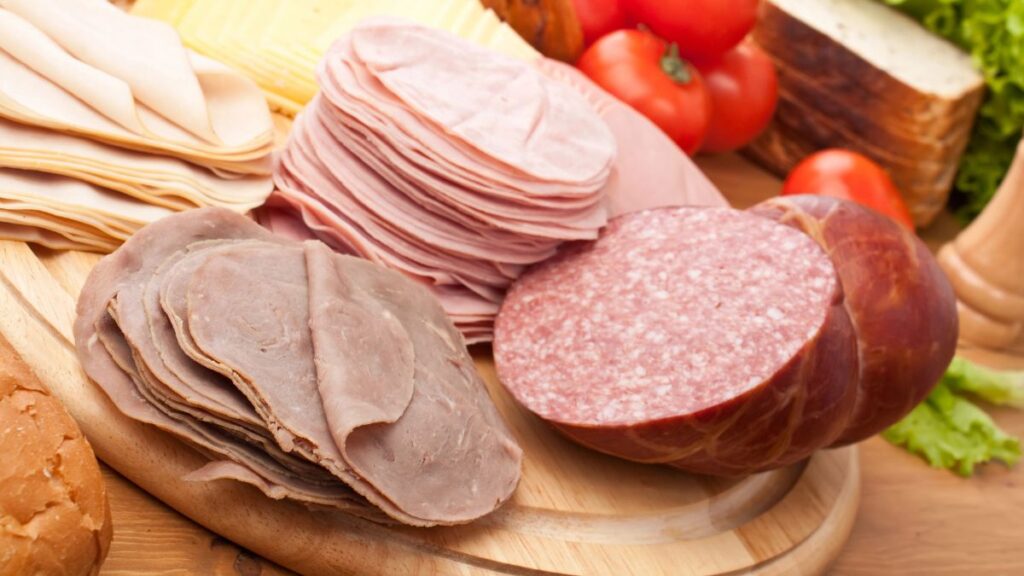
Salted foods, particularly those with high salt content like cured meats, chips, or heavily seasoned dishes, can cause significant corrosion when in contact with aluminum foil. Salt accelerates the breakdown of the foil, leading to holes that can expose your food to direct heat or other contaminants.
The interaction between salt and aluminum can result in an unpleasant metallic flavor, diminishing the overall taste of your meal. To avoid these problems, consider using wax paper, parchment paper, or plastic wrap for storing or cooking salty foods. These materials will keep your food fresh without altering its taste or quality.
Berries
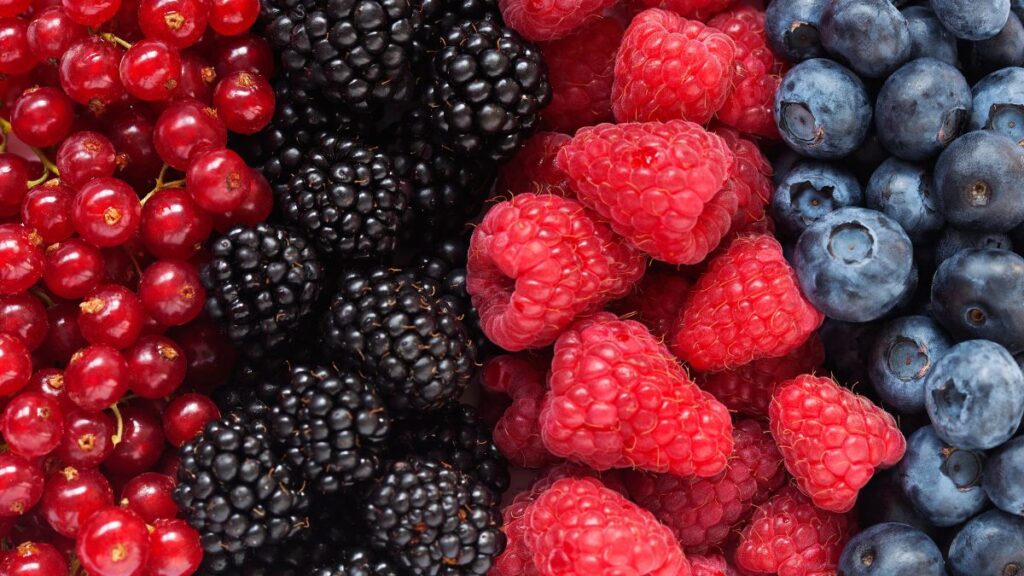
Berries, such as strawberries, blueberries, and raspberries, are packed with natural acids that can react with aluminum foil, especially when heated. This reaction can cause the foil to deteriorate, potentially leaving behind tiny pieces of aluminum in your food.
The acidic content can impart a metallic taste to the berries, making them less enjoyable. To preserve your berries’ freshness and natural flavor, it’s better to store them in plastic or glass containers. When cooking berries, use a ceramic or glass baking dish to ensure they retain their sweet, tangy taste without any unwanted metallic aftertaste.
Potatoes with Butter or Oil
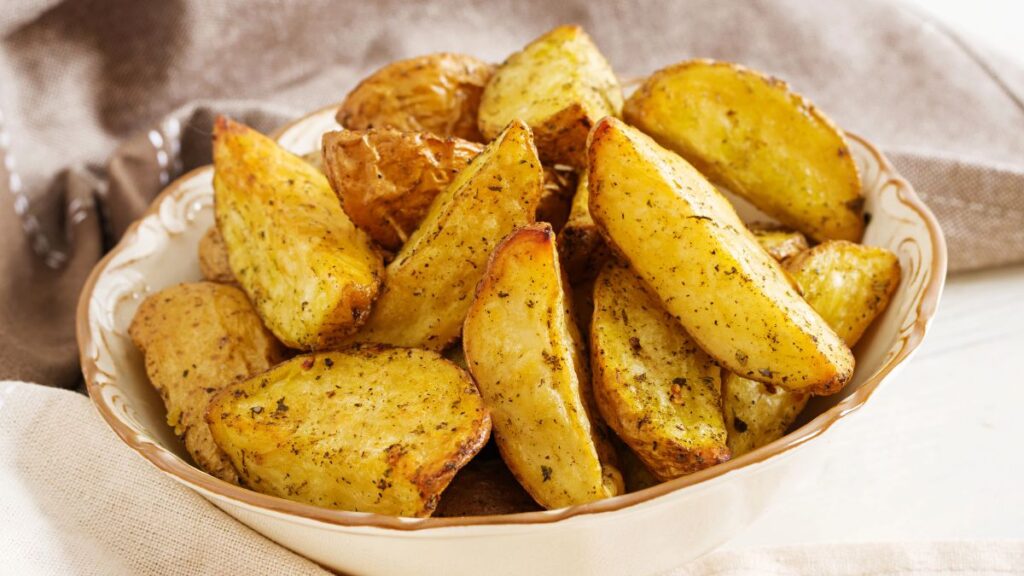
Baking potatoes in aluminum foil is common, but when you add butter or oil to the mix, you might run into some issues. The combination of fat, heat, and aluminum can cause a reaction that may lead to aluminum leaching into the potatoes, especially if they are baked at high temperatures for a long time.
This not only affects the taste, giving the potatoes a slightly metallic flavor, but it also raises concerns about the potential health impacts of consuming aluminum. To avoid these risks, consider baking potatoes directly on the oven rack or using a glass or ceramic dish. These methods will allow the potatoes to cook evenly without contamination.
Sauerkraut
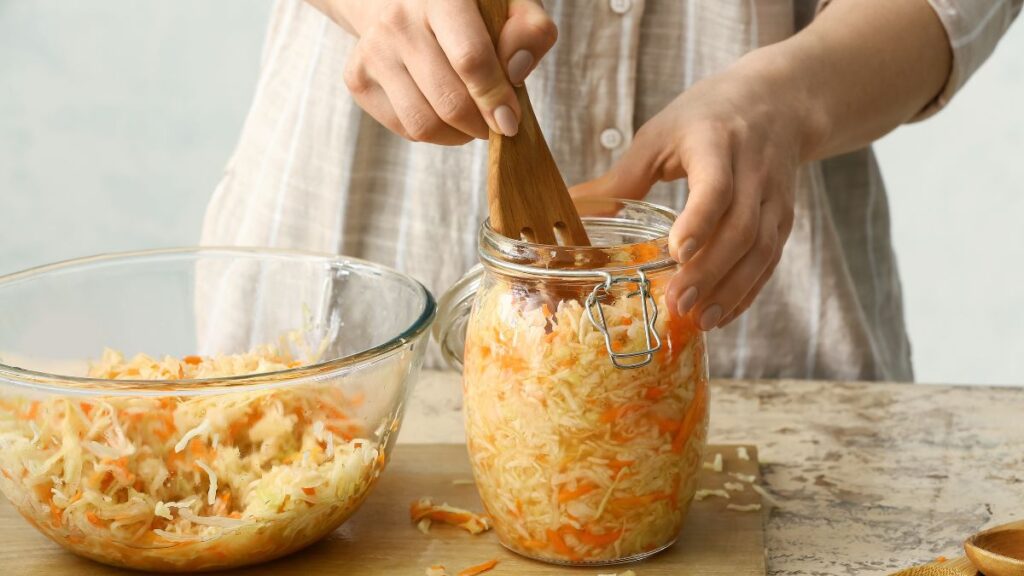
Sauerkraut, with its bold, tangy flavor, is a fermented food that is naturally high in acidity. When sauerkraut is stored or cooked in aluminum foil, the acid can react with the metal, leading to corrosion and the possibility of aluminum leaching into the food.
This alters the taste, giving it an unpleasant metallic edge, and poses potential health risks, particularly with regular consumption. To keep your sauerkraut tasting fresh and tangy, it’s best to store it in glass jars or ceramic containers. These materials will maintain the quality and safety of the sauerkraut, allowing you to enjoy its full flavor.
Pineapple
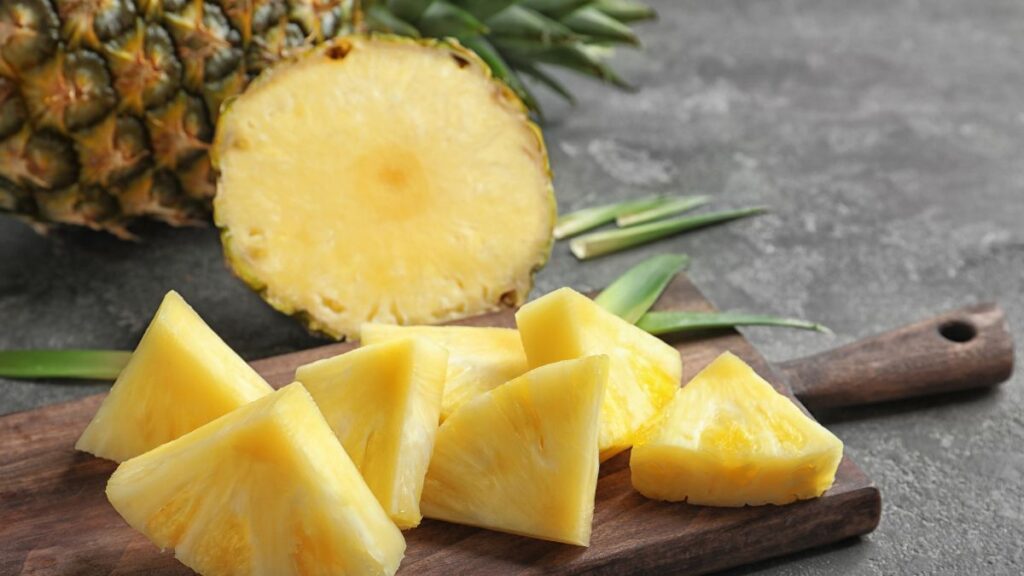
Pineapple, known for its sweet and tangy flavor, is another fruit that should not be cooked or stored in aluminum foil. The high pineapple acidity can cause the foil to break down, leading to aluminum leaching into the fruit.
This reaction imparts a metallic taste and can compromise the texture, making the pineapple less enjoyable to eat. To maintain the integrity of your pineapple, it’s best to cook or store it in non-reactive materials such as glass or ceramic. These alternatives will ensure your pineapple remains fresh, juicy, and free from unwanted metallic flavors.
Apples
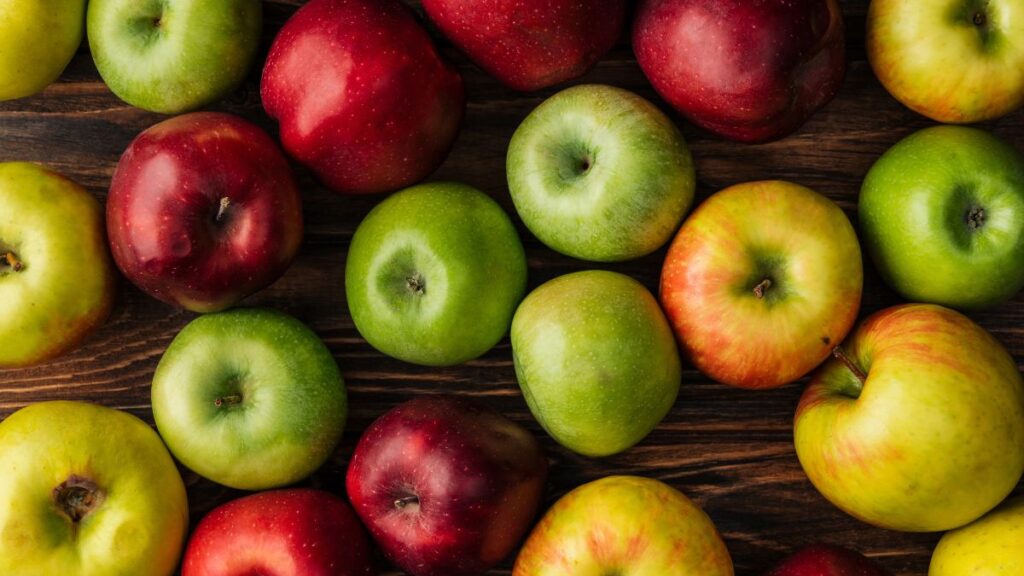
Apples, especially baked or cooked, should be kept from aluminum foil due to their natural acidity. When apples are cooked in foil, the acid can cause the metal to break down, resulting in a metallic taste that can overshadow the fruit’s natural sweetness.
The reaction can introduce small amounts of aluminum into your food, which is undesirable from a health perspective. Bake apples in a glass or ceramic dish for the best results, preserving their flavor and ensuring they remain free from any metallic aftertaste.
Rhubarb
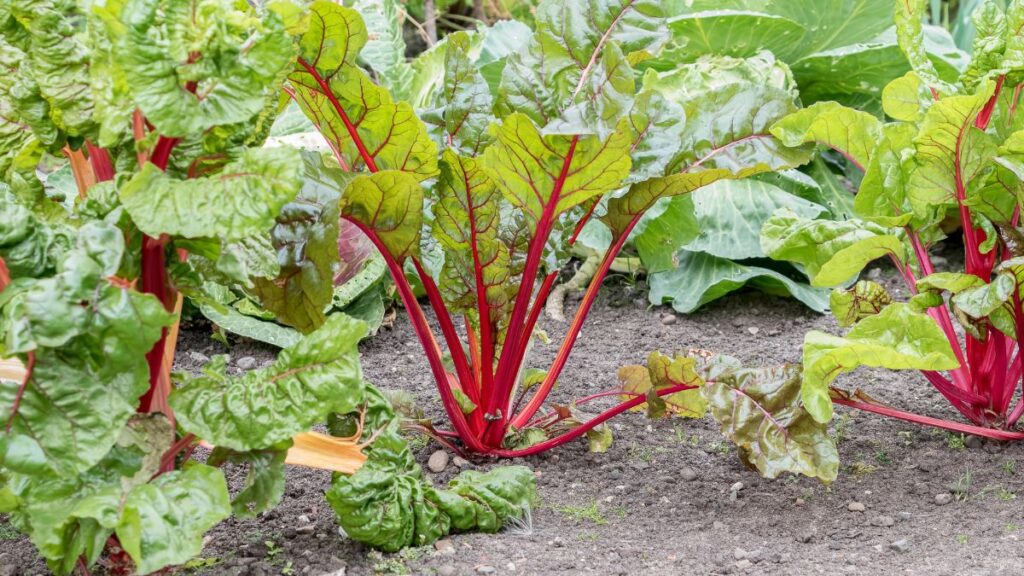
Rhubarb is a tart vegetable often used in pies and desserts, but its high acidity makes it a poor choice for aluminum foil. Cooking rhubarb in foil can cause a chemical reaction resulting in aluminum leaching into the food.
This not only alters the taste, giving it a metallic tinge, but it also raises concerns about the potential health risks associated with consuming aluminum. It’s best to cook rhubarb in a glass or ceramic dish to avoid these issues, allowing it to retain its tangy flavor without any unwanted side effects.
Gooseberries
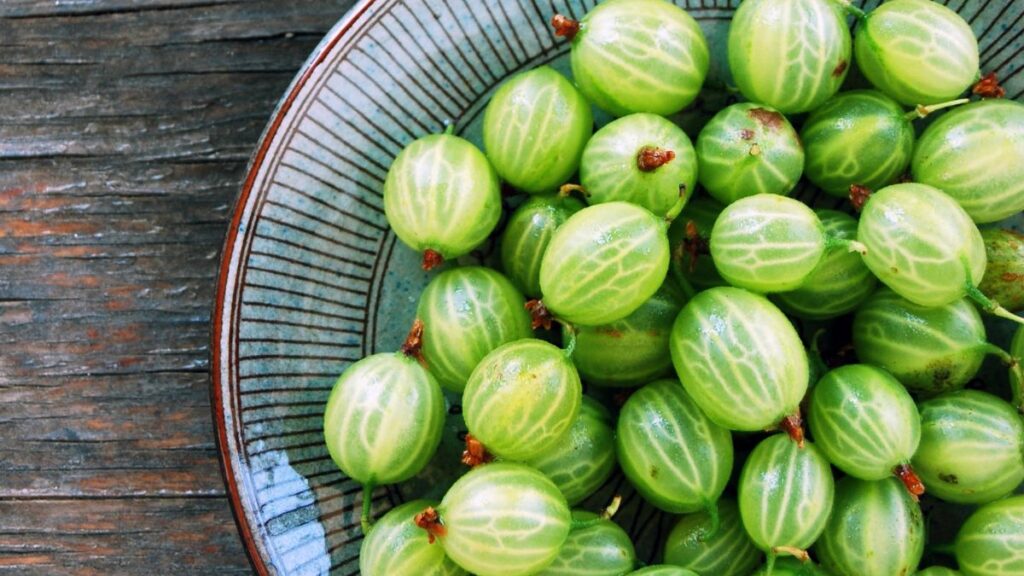
With their slightly sour taste, gooseberries are another acidic fruit that should not be cooked or stored in aluminum foil. The acidity in gooseberries can cause the foil to corrode, leading to a metallic taste and potential aluminum contamination.
This can detract from the gooseberries’ natural flavor, making them less enjoyable to eat. To preserve their unique taste, it is best to store or cook gooseberries in non-reactive containers such as glass or plastic. These materials will keep your gooseberries fresh and flavorful without contamination.
Peppers
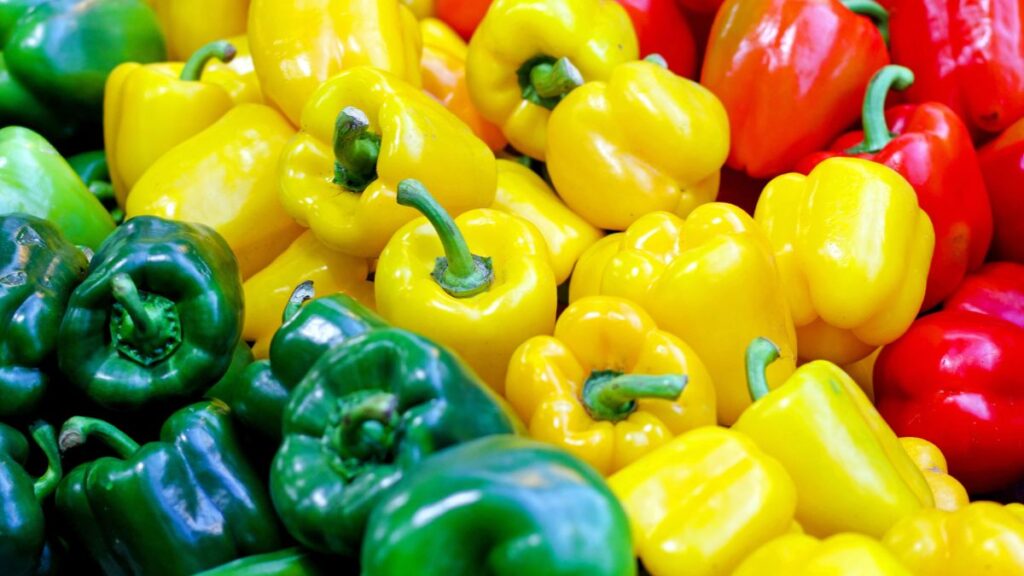
Peppers, particularly when roasted or cooked with acidic ingredients like tomatoes or vinegar, should be kept away from aluminum foil. The combination of acid and aluminum can cause the foil to break down, leading to a metallic taste and potential exposure to aluminum.
This can diminish the natural sweetness and flavor of the peppers, making them less appetizing. For better results, roast or cook peppers in a glass or ceramic dish, which will allow their natural flavors to shine without any interference from the foil.
Onions with Vinegar
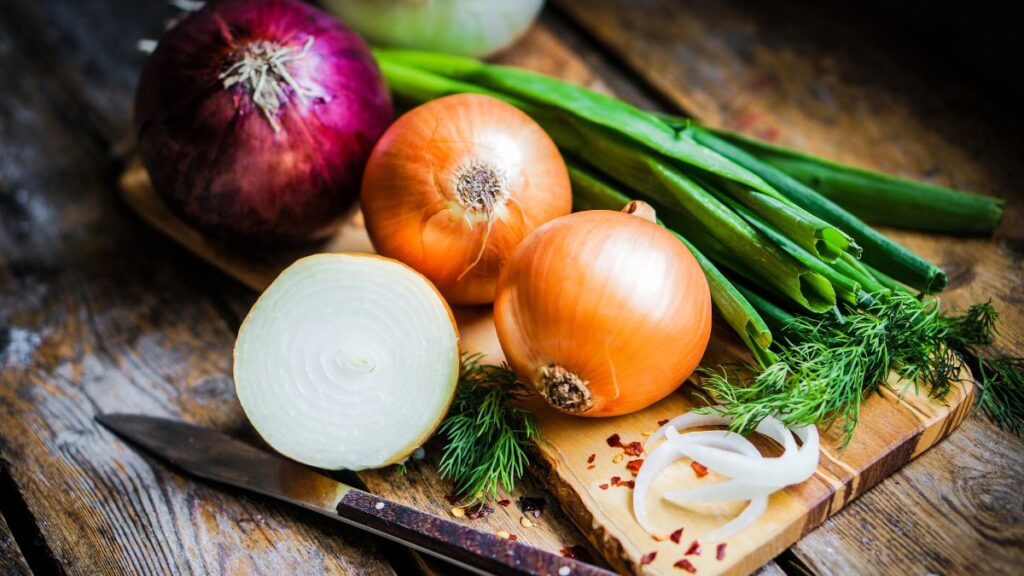
Onions are a versatile ingredient used in many dishes, but when combined with vinegar, they should not be cooked or stored in aluminum foil. The acid in the vinegar can react with the aluminum, leading to a breakdown of the foil and the possibility of aluminum leaching into the onions.
This not only affects the taste, giving the onions a metallic flavor, but it also poses potential health risks. To keep your onions tasting fresh and free from any metallic aftertaste, use glass or plastic containers for storage and cooking, particularly when vinegar is involved.
Marinated Meats
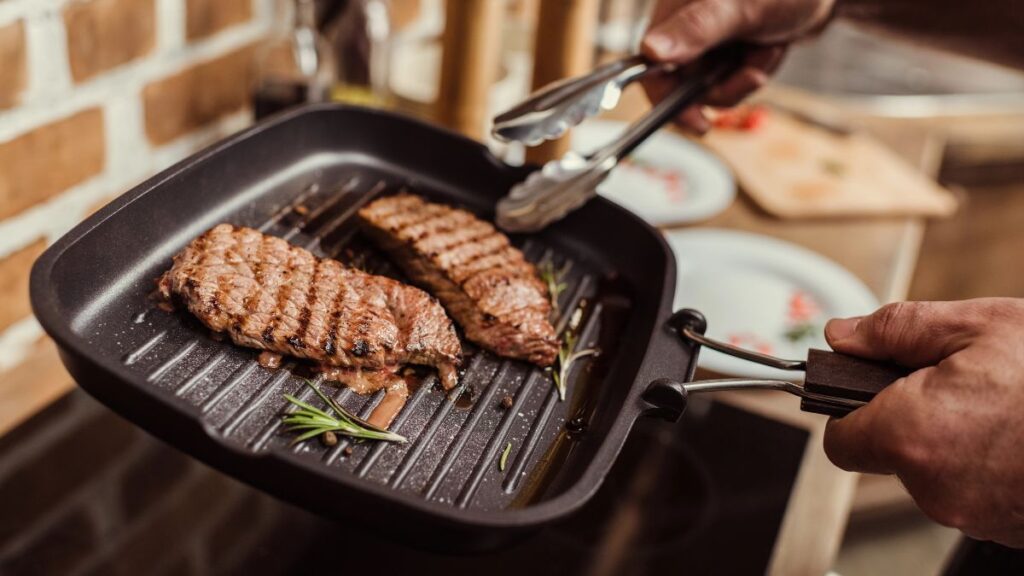
Marinated meats, especially those soaked in acidic marinades, should be kept away from aluminum foil. The acids in the marinade can cause a reaction with the aluminum, leading to the foil breaking down and the potential for aluminum to leach into the meat.
This not only affects the taste, often imparting a bitter or metallic flavor, but it can also raise concerns about the safety of consuming aluminum. To avoid these issues, marinate meats in glass, ceramic, or plastic containers, which are non-reactive and will preserve the full flavor of your dish without any unwanted side effects.
15 Foods Only The Wealthy and Elite Can Eat Now

Culinary trends are constantly evolving, and some foods have become more than just sustenance—they’ve become status symbols reserved for the elite.
15 Foods Only The Wealthy and Elite Can Eat Now
15 Practical Ways to Save Money During Retirement

Entering retirement doesn’t have to mean giving up a comfortable lifestyle. With strategic planning and simple adjustments, it’s possible to make the most of your retirement income and enjoy a financially secure life.







